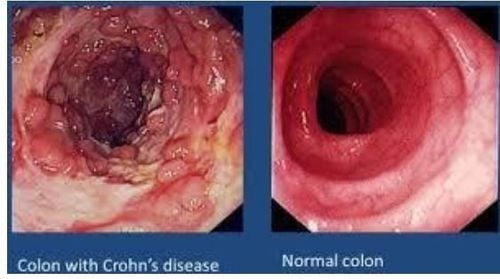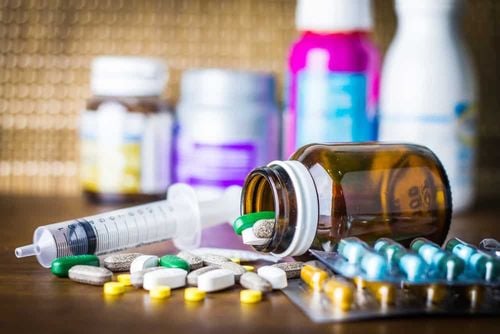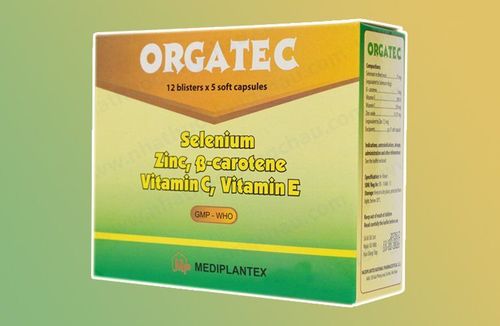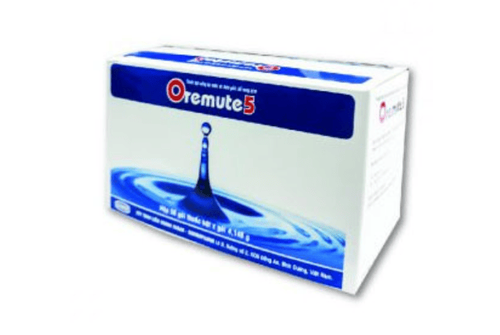This is an automatically translated article.
Besides taking care, an important condition for wound healing is to eat and drink enough nutrients. Therefore, what to eat when injured or injured is what the patient needs to pay attention to to help build and maintain new tissues quickly and effectively.
1. The role of diet for wound healing
Nutrition plays an essential role in wound care and healing. Therefore, nutritional support should be considered as a fundamental part of wound management. Poor nutrition before or during healing can impair endurance and wound healing. There is a great deal of evidence supporting the essential role of nutrition in wound healing.
Wound healing is a process of replacing injured tissue with new tissue produced by the body, requiring increased consumption of energy and nutrients. When the body sustains an injury, the release of stress hormones and metabolism that provide the injured area with the nutrients it needs to heal is known as the catabolic phase. If the catabolic phase is prolonged and/or the body is not provided with adequate nutrients, it will quickly fall into a state of malnutrition.
Malnutrition occurs when there is inadequate absorption or depletion of both protein and energy. This condition causes the body to break down protein to use for energy, reducing the supply of amino acids needed to maintain protein in the body and heal wounds; this further leads to loss of lean body mass. On the other hand, undernutrition can lead to non-healing wounds, especially when low body mass index (BMI) or significant unintentional weight loss (5% or more) is combined with loss of subcutaneous fat and / or muscle wear.
When an individual loses more lean body mass, wound healing is delayed. When 20% or more of body mass is lost, the wounds begin to compete with the muscles for nutrients. This makes the wound more difficult to heal. Therefore, a diet for wound healing is at least necessary to ensure adequate energy supply according to needs.
2. What to eat when injured?
There are a number of nutrients that play an important role in wound healing, including:
Protein supplementation for wound healing Protein or protein is the basic building block needed for the maintenance and repair of body tissue. Low protein intake will cause a decrease in collagen growth, slowing wound healing. On the contrary, proper protein intake helps to achieve optimal wound healing rates. Total energy intake is also important, because if energy needs are not met, the body will use protein for energy instead of healing.
Good sources of protein include red and white meat, fish, eggs, liver, dairy products, soybeans, legumes, nuts and seeds, and whole grains.
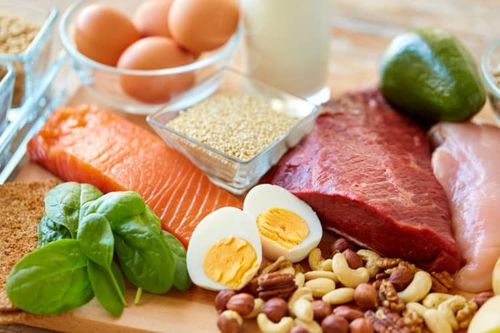
Chế độ ăn uống để vết thương mau lành nên bổ sung nhiều chất đạm
Provide energy in the diet for wound healing The main sources of energy for the human body and for wound healing are carbohydrates and fats. The main need for energy from the wound is generated by collagen synthesis. Accordingly, the energy requirement for healing will increase with the size and complexity of the wound. High-energy foods will be very valuable for patients with large and complex wounds.
Help Fats Fats include monounsaturated and polyunsaturated, providing important fuel for wound healing. Fat is a safe and concentrated source of energy. An adequate supply of fat is needed to prevent the body from using protein for energy. Fatty acids are major components of cell membranes and the need for essential fatty acids increases after injury.
Good sources of fats to promote wound healing include meat, whole dairy products, cheeses, butter, ice cream, yogurt, oils and fats used in cooking or as a filling Toppings in cakes, breads.
At the same time, it is also important to maintain body weight during the healing process. If a person is overweight, a weight loss plan should be avoided until the wound has completely healed. Meanwhile, a person who is underweight should try to gain enough weight to return to normal.
L-Arginine for faster wound healing L-Arginine is an amino acid with properties that enhance several pathways involved in wound healing, such as its role in structural protein synthesis. As the body requires more protein during wound healing, the need for amino acids that are not normally needed, such as l-arginine, becomes more essential. Dietary arginine supplements have been shown to enhance protein metabolism, help reduce muscle loss and collagen synthesis, which in turn help increase wound endurance. This is why nutritional supplements containing arginine, such as Arginaid, may be helpful as a dietary contribution to wound healing.
Vitamin C Vitamin C plays an important role in the synthesis of collagen and cross-links in the complex, as well as the formation of new blood vessels. The right amount of vitamin C will help the wound heal. Vitamin C deficiency has been shown to impair wound healing and is also associated with an increased risk of wound infection. Research has shown that vitamin C supplements help promote healing of pressure sores.
Vitamin C is found mostly in fruits and vegetables, especially oranges, grapefruits, tomatoes and leafy vegetables. Fruit juices with added vitamin C are also a good source of vitamins, but they usually contain only small amounts of vitamin C.
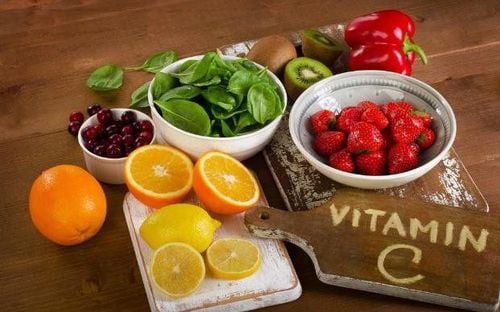
Những thực phẩm giàu vtamin C nên có trong chế độ ăn uống để vết thương mau lành
Vitamin A Vitamin A increases the inflammatory response in the wound, stimulates collagen synthesis. Low levels of vitamin A can lead to a slower wound healing rate and increased susceptibility to local infections. Furthermore, stress or severe trauma can increase vitamin A requirements. Although the mechanism by which vitamin A plays a role in wound healing is still poorly understood, this vitamin plays an important role. . However, vitamin A supplementation should be used with caution because of the potential for toxicity.
Sources of vitamin A are abundant in milk, cheese, eggs, fish, dark green vegetables, oranges, red fruits and fresh vegetables.
Zinc has a role in wound healing Zinc is a trace element, found in small amounts in the body, has a role in wound healing. In addition, zinc is involved in protein and collagen synthesis, tissue growth and healing. Zinc deficiency is associated with delayed wound healing, reduced skin cell production, and decreased wound strength.
Dietary sources of zinc include red meat, fish and shellfish, dairy products, poultry and eggs.
Iron provides oxygen to the wound Iron is a mineral that supplies oxygen to the wound. Therefore, iron deficiency can impair healing. Iron deficiency can also lead to impaired collagen production and wound strength.
The best dietary sources of iron are red meat, organs, fish, eggs, whole wheat bread, dark green leafy vegetables, dried fruit, nuts and yeast extracts .
Water is very important for wound healing Water is another important element in the diet for wound healing even though it contains no energy at all. In the practice of care, moisturizing is important in wound healing, as dehydrated skin is less elastic, more fragile and more susceptible to damage. Dehydration will also reduce the efficiency of blood circulation, thereby reducing the supply of oxygen and nutrients to the wound. One of the main risk factors for dehydration is poor water intake.
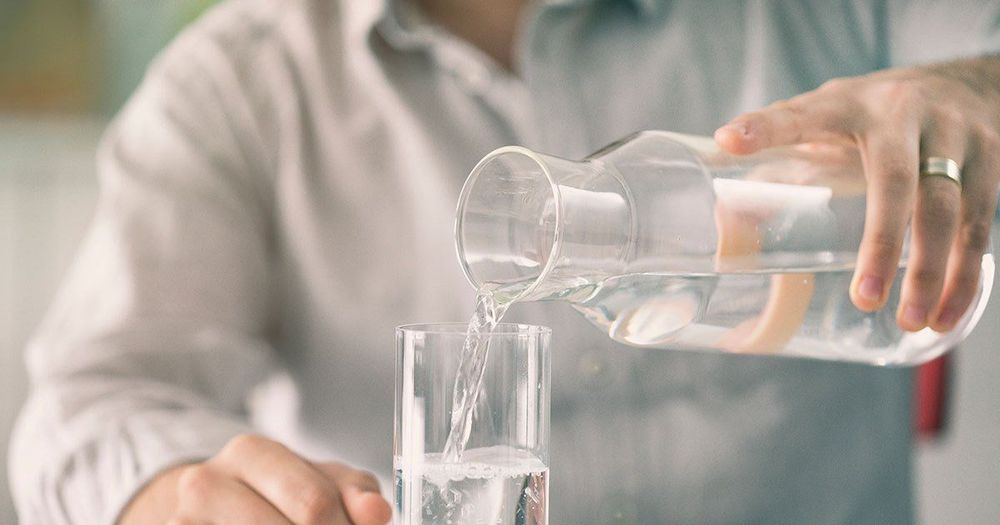
Trong chế độ ăn uống để vết thương mau lành không thể quên việc bổ sung nước cho cơ thể
3. What should not eat when injured?
Equally important when it comes to caring about what to eat when injured is to see what foods are slowing down the body's healing process. Because food can be "medicine" but also "poison" for the body when in inappropriate circumstances. In particular, while you may have a craving for sweets, remember that these foods can slow healing time and increase your risk of infection. Thus, the injured person should avoid the following foods after the wound:
Sweeteners: Food and drinks with added sugar help the patient's taste buds quickly satisfy. However, added sugars are high in calories but do not provide the body with nutritional value. You may feel energetic and alert for a short time, but quickly feel more exhausted and tired. On the other hand, bacteria and viruses thrive on sugar, which is another reason to avoid sugary foods while you have a wound. Processed foods: Processed foods are often high in white, sweet, and packaged with an extended shelf life, often with artificial colors. These foods mainly provide carbohydrates to the body, causing blood sugar spikes and high insulin levels. Both drain energy and reduce wound healing. Alcohol: Alcohol or other beverages that contain alcohol slows blood clotting and makes the blood thinner. This can make the wound take longer to heal and will also increase the risk of bleeding. In addition, alcohol also weakens the immune system, increasing the risk of wound infections. In short, a variety of foods such as vegetables, fruits, rich sources of protein and healthy fats help to heal wounds quickly. Therefore, a wound healing diet will reduce inflammation, improve the immune system and provide the fuel needed for the body to recover.
Please dial HOTLINE for more information or register for an appointment HERE. Download MyVinmec app to make appointments faster and to manage your bookings easily.
References: albertahealthservices.ca, eatright.org, healthshots.com, ncbi.nlm.nih.gov



